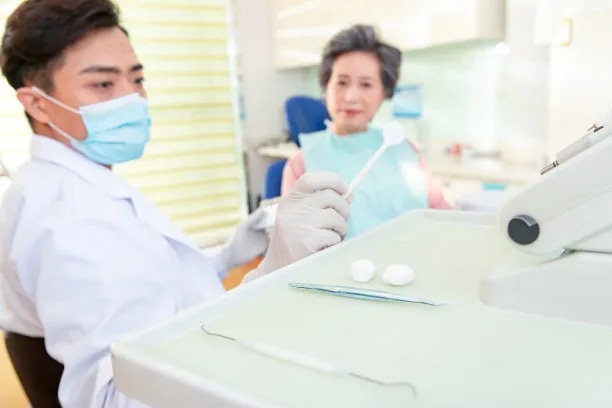The Importance of Extracting a Tooth for Dental Health Preservation and Overall Wellbeing
Summary: The extraction of a tooth, though often perceived as a last resort in dental care, plays a crucial role in not only preserving dental health but also contributing significantly to an individual’s overall wellbeing. This article delves into four key areas: the prevention of further dental issues, the importance in maintaining oral hygiene, the impact on psychological health, and the role in improving nutritional intake. Each area highlights how timely tooth extraction can lead to long-term benefits, showcasing that understanding the reasons behind extraction is essential for a holistic approach to health.
1. Prevention of Further Dental Issues

Tooth extraction can serve as a crucial intervention to prevent the onset of more severe dental problems. When a tooth is decayed or damaged beyond repair, it can become a breeding ground for bacteria. This bacteria can lead to severe infections that may extend to other teeth and gums. By removing the problematic tooth, the risk of infection spreading is minimized.
Additionally, retaining a compromised tooth can lead to misalignment of surrounding teeth. When a tooth is weak or hurting, the person may unconsciously adjust their chewing patterns, leading to wear and tear on adjacent teeth. Extraction helps maintain optimal alignment and function within the oral cavity.
There is also the benefit of preventing systemic issues linked to poor oral health. Infections that start in the mouth can have repercussions throughout the body, including heart disease and diabetes. Thus, extracting a problematic tooth contributes significantly to overall health safeguarding.
2. Importance for Maintaining Oral Hygiene
Maintaining good oral hygiene is crucial for overall health, and tooth extraction can play an essential role in this process. When teeth are overcrowded or positioned irregularly, thorough cleaning becomes a challenge, often resulting in plaque buildup and decay. Removing one or more teeth can make it easier for individuals to properly brush and floss, reducing the risk of future dental problems.
Moreover, extracted teeth can lead to improved gum health. Bleeding gums and periodontal disease often arise from accumulated bacteria around neglected teeth. By extracting teeth that harbor gum disease, patients can achieve a healthier gum environment and lower the chances of gum-related health issues in the future.
Improving oral hygiene through timely tooth extraction not only benefits dental health but can also enhance one’s confidence and self-esteem. Having a healthy mouth makes social interactions more comfortable and enjoyable, contributing to a person’s overall quality of life.
3. Impact on Psychological Health
The psychological ramifications of dental health cannot be overstated. Poor dental health often leads to anxiety and embarrassment, especially when it involves visible damage or decay. Tooth extraction, while initially daunting, can alleviate psychological burdens by removing a source of discomfort and self-consciousness.
Moreover, there is a significant connection between oral health and mental health. Chronic dental pain can lead to increased stress and discomfort, affecting daily life. By extracting problematic teeth, patients often experience relief from ongoing pain, leading to improved mood and mental clarity.
Further, for individuals who have struggled with the repercussions of oral health issues, such as bullying or social isolation, tooth extraction can mark a fresh start. Many find renewed confidence post-extraction, leading to more positive interactions and enhanced self-esteem in social settings.
4. Role in Improving Nutritional Intake
Nutrition is fundamental to overall wellbeing, and dental issues can severely hinder one’s ability to consume a balanced diet. Difficulty in chewing due to decay or damage can lead individuals to opt for softer, often less nutritious options. Extracting problematic teeth can pave the way for better eating habits and improved nutritional intake.
Once an extracted tooth heals, individuals may find that they can eat a wider variety of foods. They may transition back to a healthier, more varied diet that includes fresh fruits and vegetables and high-protein foods, essential for overall health.
Ultimately, by ensuring that dental health problems are addressed promptly through extraction when necessary, individuals can not only restore their ability to enjoy food but also maintain their health through proper nutrition. This link between oral health and dietary choices underscores the vital outcomes of timely dental interventions.
Summary:
In conclusion, this article has explored the multifaceted significance of tooth extraction, emphasizing its role in preventing further dental issues, aiding in oral hygiene, impacting psychological health, and improving nutritional intake. Understanding these factors can empower individuals to make informed decisions regarding their dental care and overall wellness.
This article is compiled by Vickong Dental and the content is for reference only.



